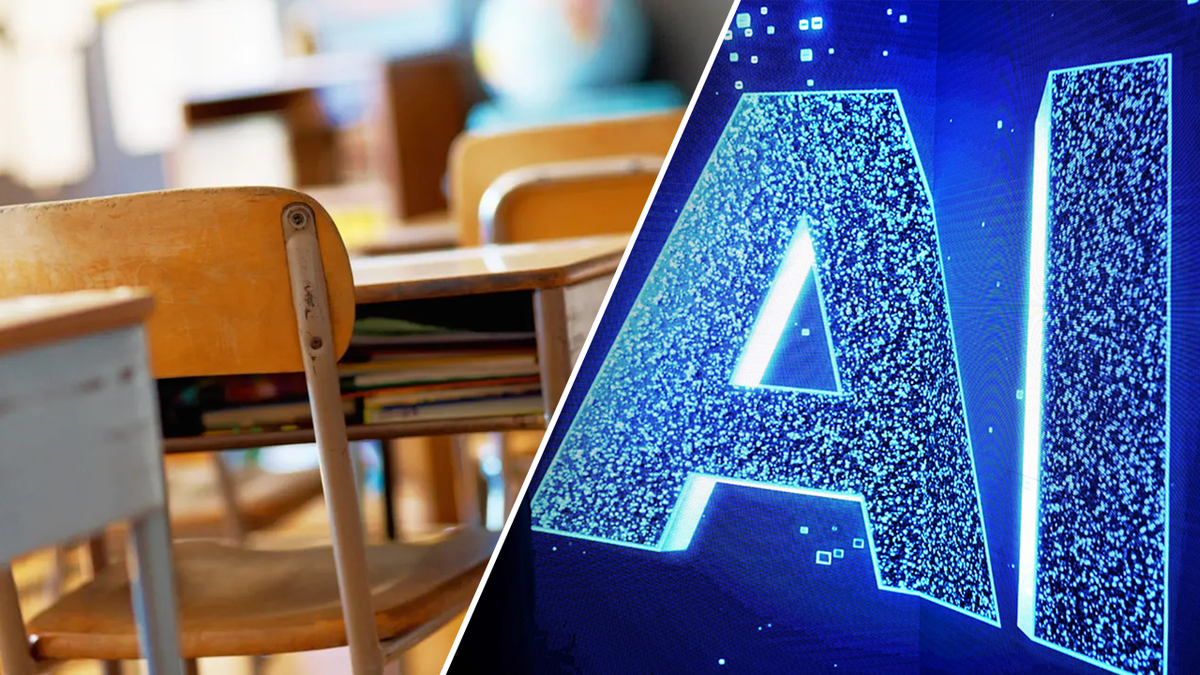AI helping medical workers care for heart conditions
Fox News medical contributor Dr. Marc Siegel outlines how the medical field is working to integrate artificial intelligence to care for heart conditions.
If you’ve read the headlines in 2023, Artificial Intelligence (AI) is either coming to save or destroy education. From AI tools that can help proofread students’ work to chatbots that can act as a kind of virtual research assistant, there are applications emerging that could rapidly improve what students are able to do and how they are able to do it.
At the same time, ask any teacher, and you’ll hear myriad stories of AI-generated essays (many with incorrect information in them), and the yeoman’s work necessary to ChatGPT-proof their tests and quizzes.
Rather than look at the whole AI and education universe, let’s focus on one significant challenge confronting K-12 education today.
NYC CHARTER SCHOOL STUDENTS OUTSCORE PUBLIC SCHOOL PEERS ON STATE EXAMS
There are more schooling and educational opportunities available to families than ever before. This year, eight states (Arkansas, Florida, Iowa, Indiana, North Carolina, Ohio, Oklahoma and Utah) enacted or expanded K-12 choice programs where more than 90% of students are eligible to participate.

Artificial intelligence could help parents make the key decisions involved in choosing schools for their children. (iStock, Getty Images)
Those major developments follow the moves to universal student eligibility in Arizona and West Virginia in 2022.
Today, approximately one in five students in America live in a state with at least near-universal choice in K-12 education. And around 20 million students nationwide are eligible for a private K-12 choice program of some type.
Add in the millions of students eligible for charter schools, magnet schools or transfers across district boundaries, and we have tens of millions of parents looking for ways to determine what school or other education provider is best for their child.
Deciding on a school or tutor — or even searching and filtering them — is a daunting task that factors in so many inputs: safety, quality, cost, community, convenience, extracurricular opportunities and reputation, to name just a handful.
Now, students and their parents can access funds to further personalize learning. Perhaps that is one of the pandemic’s lasting legacies in education — a push for new priorities, organizing, operationalizing and opening pathways to schooling and learning opportunities.
Imagine moving to a new state with your school-aged children and wanting to figure out the best fit for their education. An AI-powered bot could sift through countless school websites, local news sites, mapping tools, private sector sources, government sources and external review sites to find a slate of options for your student, your basketball player and your cellist.
Which schools have excellent teachers? Transportation options? A strong athletic program? A nice offering of extracurriculars?
At the same time, for those schools and providers participating in K-12 choice programs, information about how to pay tuition and provider costs could be easily filtered and highlighted for clarity.
There are more schooling and educational opportunities available to families than ever before. This year, eight states (Arkansas, Florida, Iowa, Indiana, North Carolina, Ohio, Oklahoma and Utah) enacted or expanded K-12 choice programs where more than 90% of students are eligible to participate.
Month after month, we have seen awareness and concern growing among parents with school-aged children. EdChoice’s November polling conducted by Morning Consult reported 78% of parents with school-aged children were concerned about the potential effects of AI – nearly 40% at least "very concerned."
A finding like this reinforces what we often suspect — parents are worried and overwhelmed, from small decisions like deciding what to pack for lunch to big ones such as where to send their children to school.
High-income earners and the college-educated are most likely to have heard of AI. Rural and low-income adults are the least likely to have heard of it. There has to be considerable effort to design these tools and access to them for less-resourced communities.
CLICK HERE FOR MORE FOX NEWS OPINION
Otherwise, the institutions, social networks and information sources intended to help level the playing field risk leaving behind these parents and students.
As a parent, I welcome any responsible technology – including a supercharged tool via AI – that can aid the major decisions we make about our kids’ schooling and education. But I echo the majority of people we surveyed who have at least some concerns about how we will deploy and use AI.
At the same time, impressive and welcome developments in the past couple years have increased the numbers of states and K-12 choice programs that help parents pay for different schooling options, including tutoring and learning materials. AI could become a tremendous boost for us.
CLICK HERE TO GET THE FOX NEWS APP
Whether Silicon Valley and EdTech can develop empathetic products and services guiding families instead of algorithms chasing clicks remains to be seen. AI designed for parents’ decision-making may sufficiently adapt to critical feedback in the hopes of advancing personalized, student-centered matching with schools, tutors and other education providers.
The future of AI technologies is one we should embrace with hope, caution and laser-focused pragmatism.











































